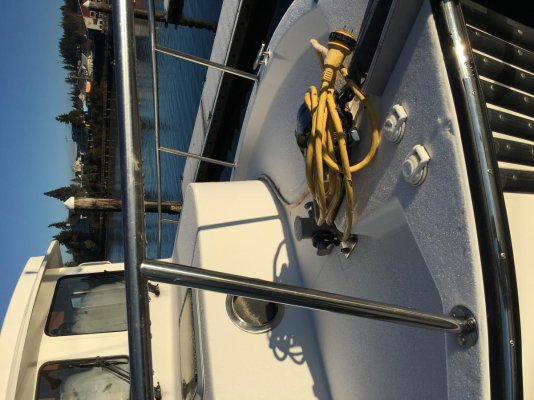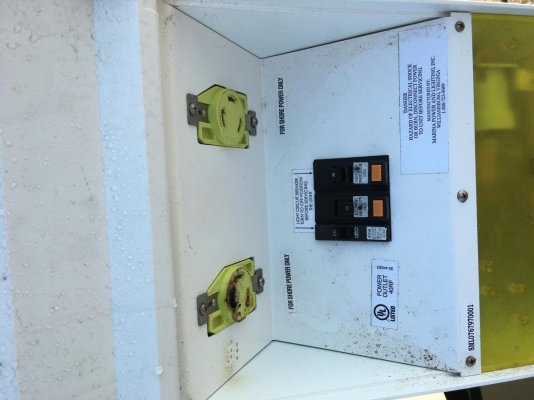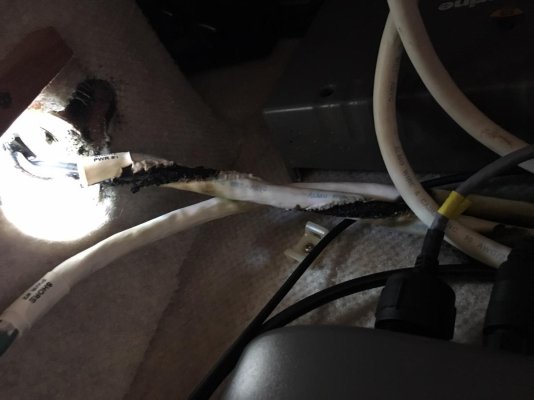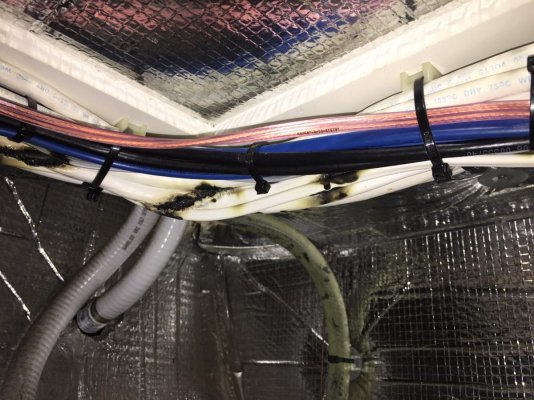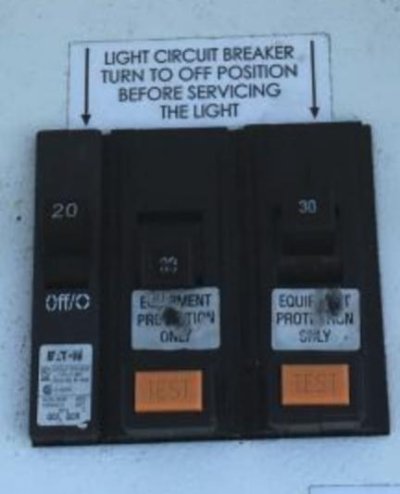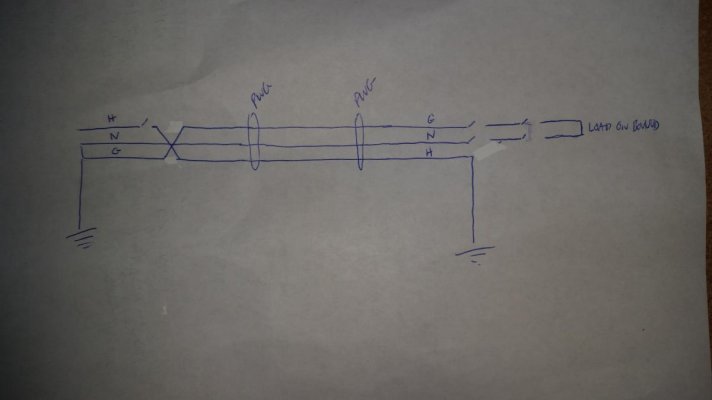Foster Nordic
Veteran Member
- Joined
- Sep 29, 2017
- Messages
- 39
- Location
- United States
- Vessel Name
- Lesser Light
- Vessel Make
- Nordic Tug 32
Dear all;
I was out on overnight winter cruise this week when a bad evening surprise hit me. Nordic Tug 32 2008. When I plugged into another marina's shore power and switched on - my entire shore power cord started smoking and smoke coming into the interior. Immediately unhooked from shore power and smoke cleared. The shore breaker never tripped but the shore outlet was badly charred on the ground terminal as was my shore power inlet on the boat. The entire shore power cord is burned in a helical pattern (see photos).
Next day opened up the boat to find the main power cable from the power inlet to the main 110V board is also burned (see photos) all the way the the 110V box; where I can follow the individual wires. Only the green (ground) wire is charred up to the main ground terminal.
Anyone up for telling me what could cause this? Any why no breakers stopped it from happening?
Thanks -
I was out on overnight winter cruise this week when a bad evening surprise hit me. Nordic Tug 32 2008. When I plugged into another marina's shore power and switched on - my entire shore power cord started smoking and smoke coming into the interior. Immediately unhooked from shore power and smoke cleared. The shore breaker never tripped but the shore outlet was badly charred on the ground terminal as was my shore power inlet on the boat. The entire shore power cord is burned in a helical pattern (see photos).
Next day opened up the boat to find the main power cable from the power inlet to the main 110V board is also burned (see photos) all the way the the 110V box; where I can follow the individual wires. Only the green (ground) wire is charred up to the main ground terminal.
Anyone up for telling me what could cause this? Any why no breakers stopped it from happening?
Thanks -

